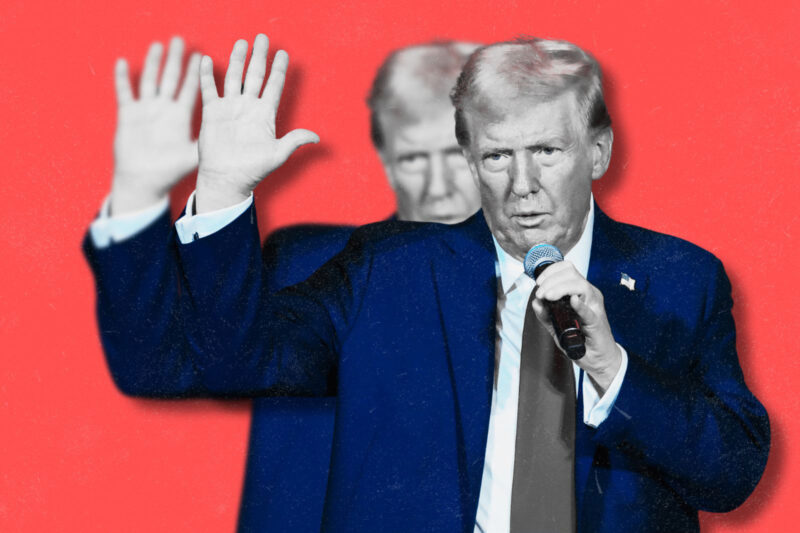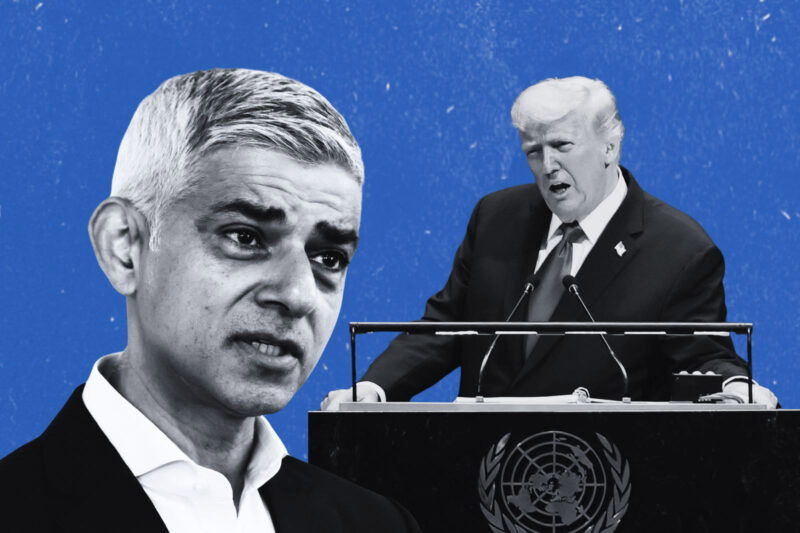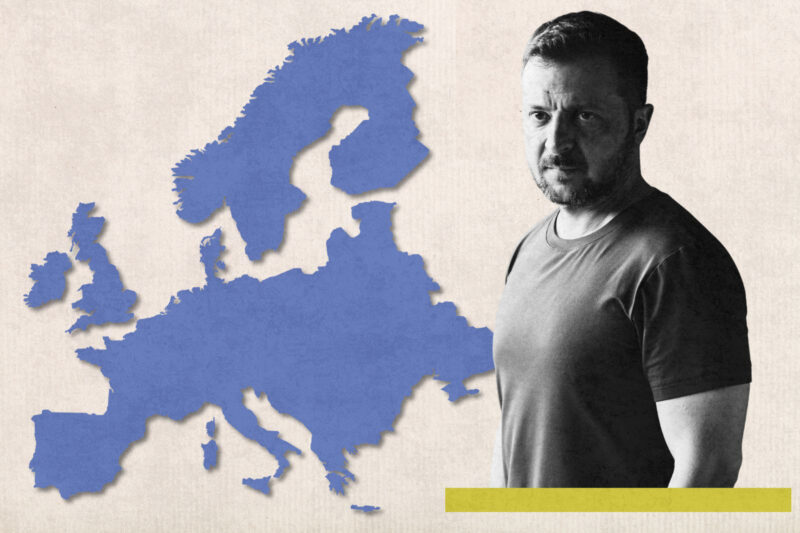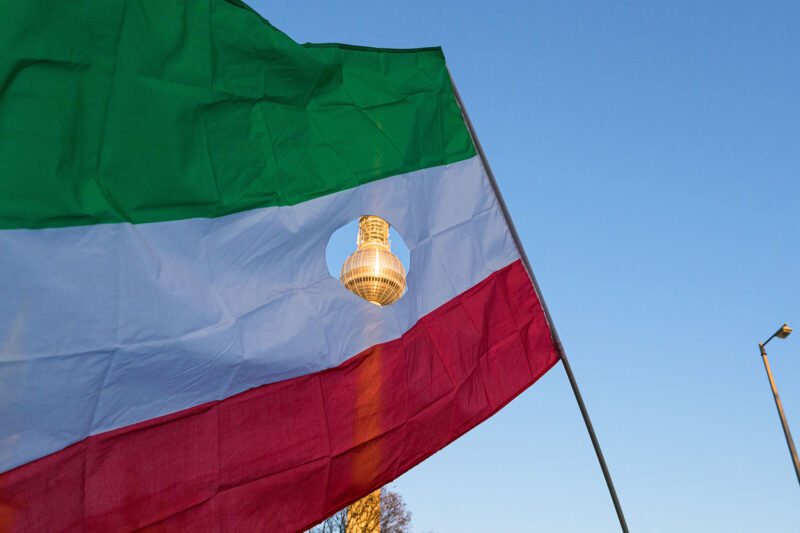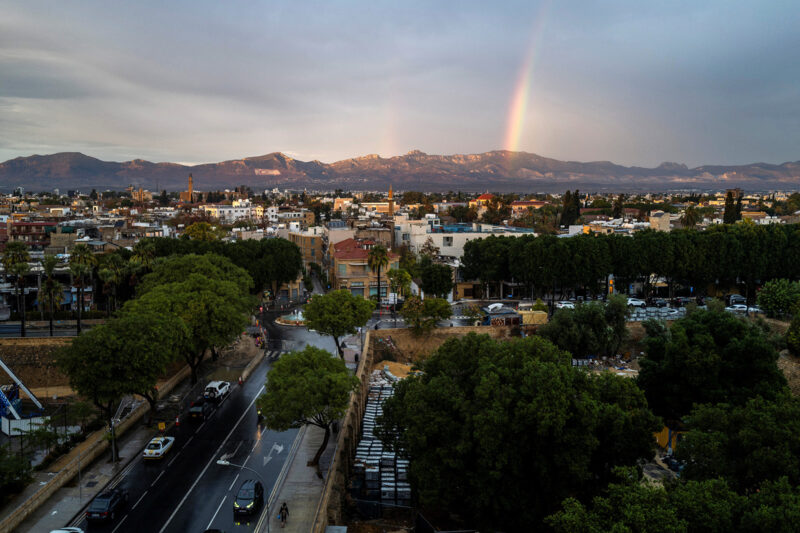Travel bans and border walls: why Latino Muslims are worried about the US election
Latinos, now representing 9% of US Muslims, juggle their faith, cultural identity and diverse views on Gaza as Harris and Trump race for the White House
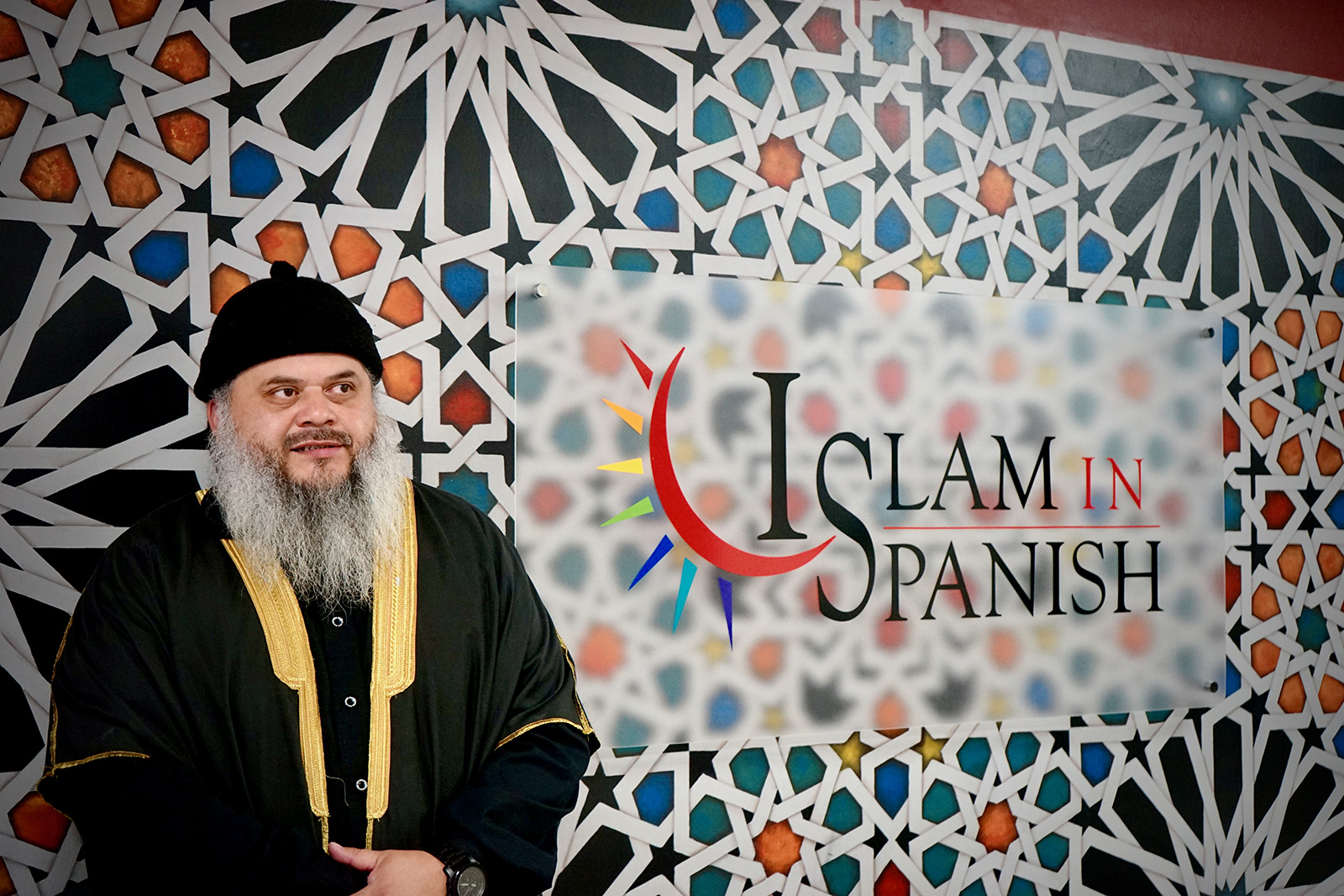
On a recent Sunday afternoon at Valley View Park in Dallas, Texas, barbecue smoke filled the air as children took turns swinging at a piñata. Sheikh Omar Hernandez had earlier invited the congregants, all Latino Muslims, to kneel in prayer. A nearby table was adorned with black cloth and bilingual brochures in Spanish and English addressing questions such as “What is Islam?” and “What is the role of women in Islam?”
This was a gathering focused on community, not politics. But with just days until the US presidential election, there was a feeling of uncertainty in the air. Latino Muslims, who make up 9% of the Muslim population in the US, are navigating a highly charged political climate. Donald Trump’s promise to reinstate his 2017 travel ban on seven majority-Muslim countries, his push to keep building a wall along the US-Mexico border and Kamala Harris’s unwavering support for Israel have many ill at ease.
Hernandez, who is Guatemalan-American, organises regular “Get to Know Islam” sessions in Dallas for Latino Muslim converts — many from Latin America, others US-born. The congregation is diverse, with roots in Mexico, Palestine and Sudan, among other countries. Hernandez says the situation in Gaza is weighing on his mind this election season.
“We have families where any major conflict is,” he told Hyphen. “We’re trying to be there and support them, and help provide spiritual guidance.”
Hernandez, who received religious training in Saudi Arabia, delivers Friday khutbahs (sermons) in Spanish at an outreach centre in Dallas set up by IslamInSpanish. The group, founded shortly after 9/11 to educate Latinos about the religion, has grown steadily as more Latinos have found themselves drawn to Islam. It produces videos on social media, attracting a significant viewership across Spanish-speaking countries and communities in the US, and will formally open America’s only Spanish-speaking mosque and Islamic centre — Centro Islámico — in Houston next month.
“I’m Latino and Muslim,” Hernandez said. “Politically, we want the same that any group wants, right? We want to be able to practise our religion.” The outreach centre is non-partisan, and not a political organisation. But within the community, people have strong and diverse political views. Some back Harris owing to concerns over another Trump presidency. Others support third-party candidates or remain undecided about electoral participation altogether.
Despite its firmly Republican orientation, Texas — America’s second most populous state — has undergone major demographic shifts in recent years, growing younger and more diverse. Latinos now constitute nearly a third of its electorate. Democrats have long hoped this might work in their electoral favour and position Texas as a future swing state, but Republicans in Texas are well aware of the power of the Latino vote. Texas Republican Ted Cruz, who faces a high-stakes Senate race that could determine control of Congress next week, has spent an unprecedented $4.4m on Spanish-language ads targeting Latino voters in the hope of edging out Democratic challenger Colin Allred.
As the political landscape in Texas shifts, Muslims are also reassessing their political engagement. “In 2020, like the general public, Muslims named domestic issues as their top policy priorities — specifically, healthcare, the economy and social justice causes,” said Erum Ikramullah, a senior research project manager at the Institute for Social Policy and Understanding. “Just 5% of Muslims cited foreign policy as a top policy priority in 2020.
“In 2024 polling, on the other hand, we find that 61% of American Muslims named the war in Gaza as their top policy priority.”
‘We’re not seen or represented’
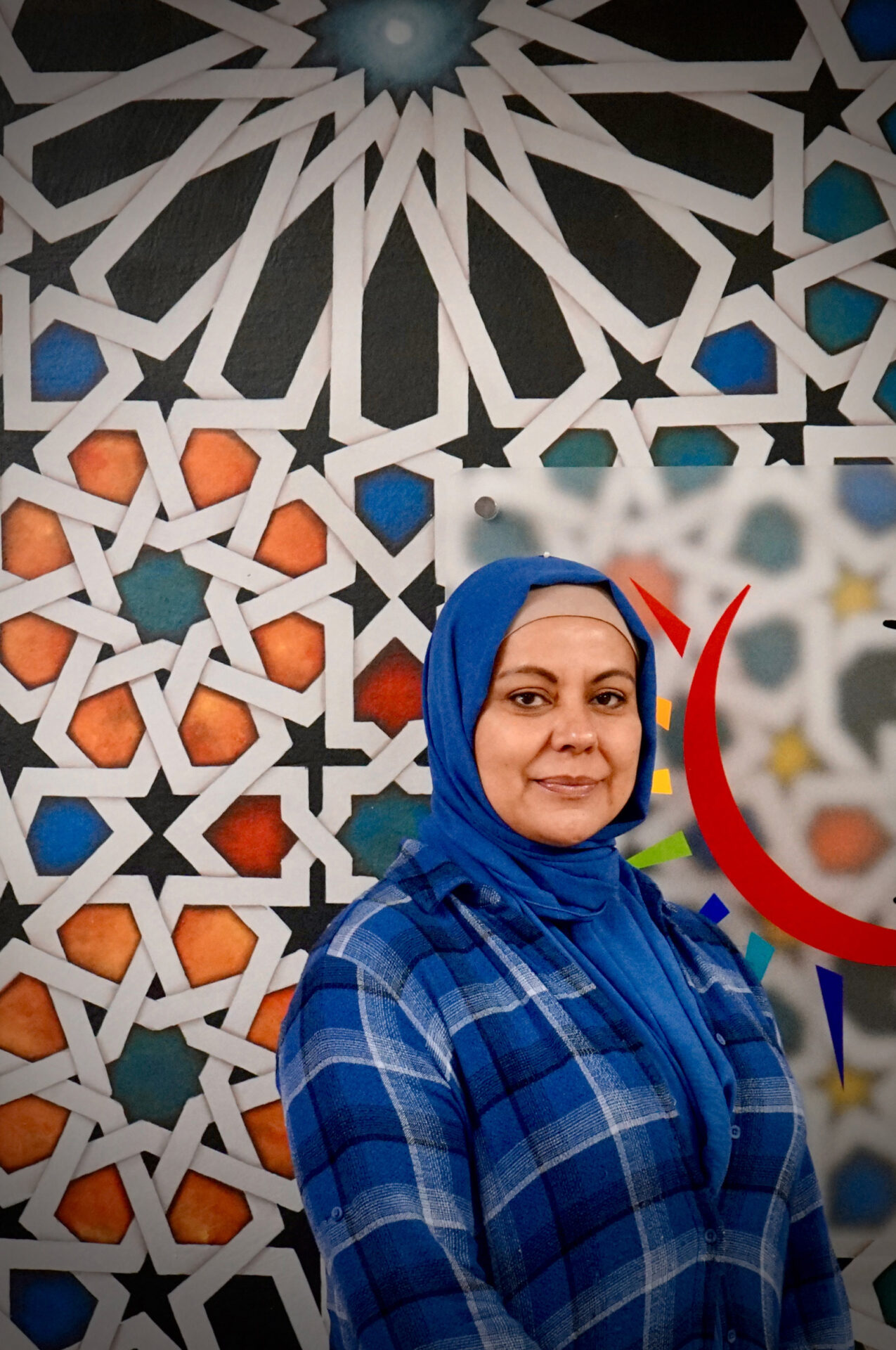
After Hillary Clinton’s defeat in 2016, Lourdes Crawford had given up on the notion of a female president. “I really thought that it wasn’t going to happen in my lifetime,” said the 51-year-old Mexican-American Muslim, who plans to vote for Kamala Harris. “To see a woman of colour running for that spot means a lot to me.”
Crawford, who runs a small insurance company, added that she was optimistic about Harris’s economic agenda, which pledges to boost small businesses like hers by providing interest-free loans.
Crawford’s faith is an important part of her political identity, and she believes the tendency of Muslims to lie low and avoid attention in the post-9/11 years has been detrimental. “We’re not seen. We’re not represented,” she said. She argues that it’s essential for Muslims to assert their political rights and to show candidates they are “valuable members of this society”.
“If [Trump is] elected, it might impact your civil liberties, your right to wear hijab, your right to practise religion,” Crawford said. As a hijabi herself, she’s afraid of how Trump’s divisive and nationalistic rhetoric might incite discriminatory policies in the workplace. While Crawford owns her own business, she’s concerned about how women in more vulnerable, low-level positions might be affected. “For highly technical positions, wearing a hijab is no problem,” she said, pointing out that demand for these workers is so high that bosses are less likely to discriminate. “But for lower levels, hijab is a liability.”
Third-party candidates
While Crawford is optimistic about Harris’s candidacy, others expressed frustration with Harris’s support for Israel amid rising civilian casualties in Palestine and Lebanon. This shift reflects a broader discontent with the two-party system, prompting endorsements of third-party candidates like Jill Stein from groups such as the American Arab and Muslim Political Action Committee, and some voters choosing to sit out the election altogether.
Hernandez acknowledges that some voters may abstain from voting in this election, reflecting frustrations with the status quo and a desire for change. “We have a big immigrant community,” Hernandez said, “and they just want to work and make sure that they’re able to survive. The bigger concerns are education and the economy; there are a lot of complaints about money not lasting.”
A 42-year-old Muslim woman from Venezuela, who is not eligible to vote, said she disagreed with people who were choosing to abstain. “You have to go for the least bad option,” she said. “They will have to vote. I cannot.” The woman asked to remain anonymous, out of concern that being quoted in this article might affect her residency status.
“If you look at it from a tactical standpoint, it is not smart to elect Trump or to waste your vote,” Crawford said, referring to third-party voters. “What is Jill Stein going to do for Palestine? Absolutely nothing.” She stressed the importance of building coalitions with other communities and said she believed it was better to challenge the Democratic establishment from within. Muslims and Arab-Americans in the US have indeed built far-reaching coalitions aimed at pressuring Harris and other Democratic leaders to shift their positions on Israel this election cycle, though the tactic has not delivered the results that many hoped for.
Fears of a second Trump presidency
Latino Muslims are also grappling with the potential implications of a second Trump presidency. If re-elected, Trump plans to cancel visas for pro-Palestinian student protesters, revive his deportation programme, and reinstate his controversial and legally dubious Muslim travel ban. Although he claims success in lifting many Hispanics out of poverty, his record also includes attempts to rescind special protections for undocumented minors and separate migrant families, and calls for a border wall. According to the Pew Research Center, 55% of Latinos were worried about family or loved ones being deported during Trump’s presidency.
For José, a naturalised citizen originally from Guatemala who asked us to withhold his surname for fear of retribution in the event of a Trump victory, these fears are still active. He took out his cellphone and pointed me to the case of Francisco Erwin Galicia, a US citizen who was detained by Customs and Border Protection for three weeks during Trump’s presidency. “I don’t think Trump cares if we’re American citizens,” he said. “Remember the Muslim travel ban? If you’re Hispanic and Muslim, that’s two strikes against you.”
Although he voted for Biden in 2020, José was unhappy about the administration’s decision to provide military aid to Ukraine. “The Democrats never told me they were going to send billions to the war in Ukraine, while here we are having economic difficulties and the price of everyday items went up,” he said. José does not plan to support the Democrats in 2024: he said he hoped to back a third-party candidate, but was still researching the options.
José is not alone in his disillusionment with the Democratic party. While Latinos historically have leaned Democratic — Joe Biden received 59% of the Latino vote in 2020 — a recent New York Times/Siena poll found that just 52% of Latinos planned to vote for Harris. And while the party might expect immigration policy to be a top concern for many in this community, surveys indicate that economic issues, not social ones, are often the highest priority for Latino voters.
Alex Gutierrez, a Colombian-American Muslim convert in Houston, said he was not sure if he would vote, but that he recognised the importance of exercising his civic duty. For him, the local-level races that will also be decided on 5 November weigh the most heavily on his mind. He’s worried about refugees receiving adequate resources, and would like to see funds distributed locally to needy Americans and refugee groups rather than directed overseas.
As Latino Muslims chart their political trajectory, however, Gutierrez underlined that it was imperative for Latinos to claim their political power. “We are living in this land,” Gutierrez said, “and we have to play our part — because, if not, then we can’t blame anybody but ourselves.”
 Newsletter
Newsletter



